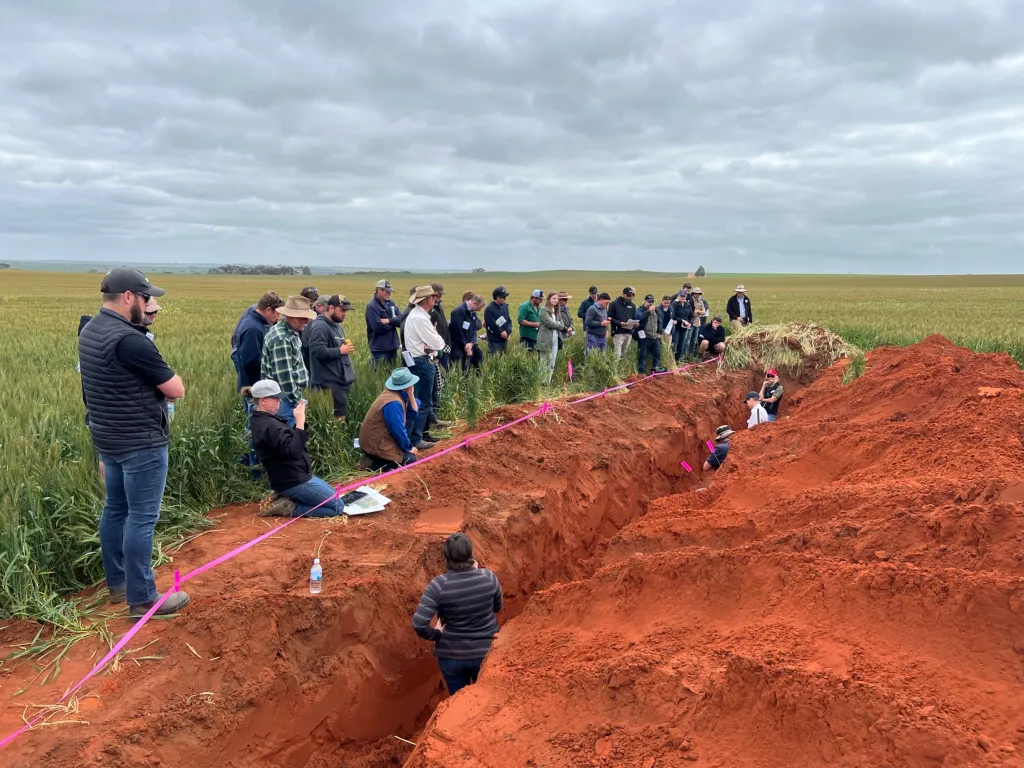Transforming data into discussions
In my previous K update article (November eNewsletter), I stated that the GRDC-funded K Extension Project’s current goal was to “transform complex data into accessible, practical knowledge for our host farmers.” I believe the creation of the K nutrient infographic has been a turning point in this project and in ticking off that goal.
In 2024, the project continues to concentrate on potassium (K) management, particularly by creating more opportunities for grower interaction within the West Midlands region. This January, the project is at a crucial stage of interpreting and communicating complex soil nutrition data with farmers. This three-year project is structured around fostering discussions on K management and devising nutrient strategies aimed at understanding and potentially maximizing yield potential.
This summer’s critical development was the creation of a nutrient budget infographic, a shift from the initially planned Potassium Management Triangle. This decision emerged from the challenges in effectively presenting the multifaceted data involving environmental, management, and soil K aspects. The final infographic, a result of several iterations, now effectively displays crucial information including 2024 management specifics like applied K during the growing season and critical K levels at various crop growth stages for wheat, canola, and barley. It also incorporates detailed graphs on cumulative soil K, soil moisture, and soil strength, offering a comprehensive, easy-to-understand nutrient budget (without all the rows of an Excel spreadsheet).
January has been a big month for heading out on farm to discuss the K nutrient budgets with the host growers. The new infographic has been crucial, particularly in facilitating a discussion about soil K, soil constraints, and on-farm data collection. These conversations are vital to the project because they are not one-directional but allow us to expand our collective understanding of K management in a practical, conversational context. This approach reflects our effort to balance informative content with honest, open discussions with our members.


The project’s next phase will be to document growers’ experiences in soil and plant testing, understanding nutrient budgets, and K cycling through case studies. These case studies are not focused on the direct results of the sampling but on the experiences, insights, and challenges of both this project and on-farm K management.
Throughout 2024, we aim to broaden the scope of the K conversation by setting up demonstration sites across the West Midlands region, inviting more growers to join the dialogue, and turning it into a collective, community-wide discussion rather than isolated one-on-one conversations.
For further information on the K Extension Project or to engage in our ongoing discussions, contact me at 0459 353 840.
Melanie Dixon
Mixed Farming Systems Officer, WMG













